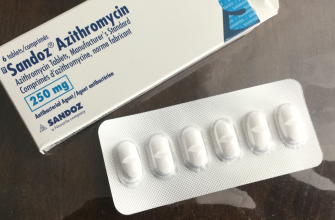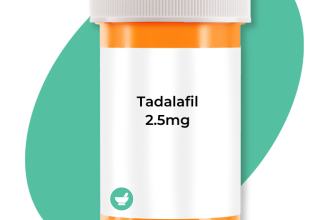Consult your healthcare provider to explore the benefits of Diflucan (fluconazole) for treating various fungal infections. This oral medication efficiently targets conditions such as candidiasis and cryptococcal meningitis. By discussing your symptoms with a medical professional, you can ensure that Diflucan is the right choice for your particular case.
Once prescribed, it’s important to follow your doctor’s instructions on dosage and duration of treatment. Diflucan is typically taken once daily, with or without food, depending on your specific needs. Consistency in taking the medication helps maintain stable levels in your bloodstream, enhancing its efficacy against the infection.
Be aware of potential side effects, such as nausea or headache, and communicate any adverse reactions to your doctor. Your healthcare provider may need to adjust your dosage or explore alternative treatment options if you experience significant discomfort. Staying informed and engaged in your treatment will facilitate a smoother recovery process.
In conclusion, discussing Diflucan with your healthcare provider opens doors to effective treatment for fungal infections. By taking an active role in your health, you can contribute to a successful outcome and return to your daily activities more quickly.
- Understanding Prescription Diflucan
- Usage Guidelines
- Potential Side Effects
- What is Prescription Diflucan?
- Common Uses of Diflucan in Medical Treatment
- Vulvovaginal Candidiasis
- Systemic Fungal Infections
- How to Properly Take Diflucan Medication
- Potential Side Effects of Diflucan
- Drug Interactions to Be Aware Of with Diflucan
- Dosage Guidelines for Different Conditions
- 1. Vaginal Candidiasis
- 2. Oropharyngeal Candidiasis
- 3. Esophageal Candidiasis
- 4. Cryptococcal Meningitis
- 5. Systemic Candidiasis
- What to Do if You Miss a Dose of Diflucan
- Steps to Follow
- Consult Your Healthcare Provider
- Consultation and Follow-Up with Your Healthcare Provider
- Monitoring Your Progress
- Aftercare and Lifestyle Adjustments
Understanding Prescription Diflucan
Prescription Diflucan, known generically as fluconazole, serves as an antifungal medication primarily used to treat fungal infections, including candidiasis and cryptococcal meningitis. It’s critical to adhere to the prescribed dosage from your healthcare provider, as this ensures optimal effectiveness while minimizing the risk of side effects.
Usage Guidelines
Take Diflucan as directed, typically once daily. The treatment duration varies depending on the infection type; some may require just a single dose, while others might need weeks of therapy. Swallow the tablet whole with a glass of water. Ensure consistent timing to help maintain even medication levels in your system.
Potential Side Effects
While many tolerate Diflucan well, some may experience side effects such as nausea, headache, or abdominal pain. If you notice more severe symptoms like rash, difficulty breathing, or yellowing of the skin or eyes, contact your healthcare provider immediately. Always discuss your medical history and any other medications you’re taking to avoid interactions and complications.
What is Prescription Diflucan?
Prescription Diflucan, known generically as fluconazole, is an antifungal medication used to treat various fungal infections. It combats infections caused by fungi and yeast, targeting conditions such as candidiasis, cryptococcal meningitis, and certain types of infections in the mouth, throat, and esophagus.
Doctors often prescribe Diflucan in situations where patients are at risk of serious infections, particularly those with weakened immune systems or underlying health issues. The medication works by inhibiting the growth of fungus, allowing the immune system to effectively eliminate the infection.
Patients typically take Diflucan orally, with dosing dependent on the type and severity of the infection. It’s crucial to complete the prescribed course, even if symptoms improve before finishing the medication, to prevent recurrence or resistance.
While generally well-tolerated, potential side effects can include headaches, dizziness, and gastrointestinal upset. Anyone experiencing unusual symptoms or allergic reactions should contact their healthcare provider promptly.
Always consult a healthcare professional for proper diagnosis and treatment options tailored to individual health needs. Regular follow-ups may be necessary to ensure the effectiveness of the treatment and monitor for any side effects.
Common Uses of Diflucan in Medical Treatment
Diflucan, known generically as fluconazole, plays a significant role in treating various fungal infections. Physicians often prescribe it for conditions like candidiasis and cryptococcal meningitis. This antifungal medication effectively inhibits the growth of fungi by disrupting their cell membranes, making it a reliable choice in clinical settings.
Vulvovaginal Candidiasis
One of the most common uses of Diflucan is for vulvovaginal candidiasis, commonly known as a yeast infection. A single oral dose usually suffices, providing rapid relief from symptoms such as itching and burning. Patients often appreciate the convenience of this one-time treatment compared to topical options, which may require several days of application.
Systemic Fungal Infections
Diflucan is also essential in managing systemic fungal infections, particularly in immunocompromised individuals. It treats infections like cryptococcosis, especially in patients with HIV/AIDS. The typical regimen might include daily doses for an extended period, helping to control and prevent recurrence effectively. Regular monitoring of patient response is crucial to ensure optimal outcomes.
How to Properly Take Diflucan Medication
Take Diflucan exactly as prescribed by your healthcare provider. Follow the dosage instructions carefully. Swallow the tablet whole with a full glass of water. You can take it with or without food, depending on your preference.
If you miss a dose, take it as soon as you remember. If it’s almost time for your next dose, skip the missed dose. Do not double up to make up for a missed one.
Stay hydrated throughout the treatment. Drinking ample water helps your body to metabolize the medication effectively. Avoid consuming alcohol, as it may interfere with the medication’s effectiveness.
Monitor any side effects you may experience. Common side effects include nausea, headache, or dizziness. If side effects persist or worsen, contact your doctor promptly.
Complete the entire course of treatment, even if your symptoms improve. Stopping early can lead to a resurgence of the infection. Follow up with your healthcare provider to assess the results of the treatment.
If you have any questions about interactions or specific conditions, discuss them with your healthcare provider to ensure safe use.
Potential Side Effects of Diflucan
Diflucan (fluconazole) may lead to various side effects. Always monitor your body’s responses after taking the medication. Most common side effects include:
| Side Effect | Frequency |
|---|---|
| Nausea | Common |
| Headache | Common |
| Dizziness | Less common |
| Abdominal pain | Common |
| Diarrhea | Less common |
Some individuals may experience more severe reactions. Seek immediate medical attention if you notice symptoms like:
- Severe allergic reactions (rash, itching, swelling)
- Unusual fatigue or weakness
- Changes in vision
- Severe liver problems (yellowing of the skin or eyes)
Consult your healthcare provider if you experience ongoing or worsening side effects. Your doctor may adjust your dosage or suggest alternative treatments. Always keep track of your health changes while taking Diflucan to ensure safe and effective use.
Drug Interactions to Be Aware Of with Diflucan
When taking Diflucan (fluconazole), stay alert for potential interactions with specific medications. This antifungal can affect how other drugs work in your body, leading to altered effects or increased toxicity.
Warfarin, commonly used as a blood thinner, often sees an increase in its effect when taken alongside Diflucan. Regular monitoring of your INR levels is advisable to ensure they remain within a safe range.
Medications for diabetes such as sulfonylureas may have enhanced effects when combined with Diflucan, potentially causing hypoglycemia. Adjusting your diabetes medication dosage could be necessary.
Antiretroviral medications, especially those used to treat HIV, can experience increased blood levels due to the interaction with Diflucan. This includes drugs like ritonavir, which may require careful management and adjustment of antiretroviral therapy.
Patients on certain cholesterol-lowering agents, particularly statins like atorvastatin and simvastatin, should be cautious. Diflucan can raise statin levels, elevating the risk of muscle-related side effects.
Consult your healthcare provider before starting or stopping any medications. They can help assess risks and determine the best course of action based on your unique health situation.
Dosage Guidelines for Different Conditions
For fungal infections, the standard dosage of Diflucan (fluconazole) varies based on the specific condition being treated. Here’s a detailed guideline:
1. Vaginal Candidiasis
- Single dose of 150 mg orally.
2. Oropharyngeal Candidiasis
- Initial dose: 200 mg on the first day.
- Followed by 100 mg daily for at least 2 weeks.
3. Esophageal Candidiasis
- Initial dose: 200 mg on the first day.
- Maintain with 100 mg daily for at least 3 weeks or until symptom resolution.
4. Cryptococcal Meningitis
- Induction phase: 400 mg once daily for at least 2 months.
- Maintenance phase: 200 mg once daily.
5. Systemic Candidiasis
- Loading dose: 800 mg on the first day.
- Maintenance dose: 400 mg once daily.
Monitor patient response and adjust dosages accordingly. Always consult a healthcare provider for personalized recommendations based on individual health conditions and potential drug interactions.
What to Do if You Miss a Dose of Diflucan
If you forget to take a dose of Diflucan, take it as soon as you remember. If it’s almost time for your next dose, skip the missed dose. Do not double up to make up for a missed one.
Steps to Follow
- Check the time. If it’s within a few hours of your scheduled time, take the left dose immediately.
- If you remember close to your next dose, skip the missed dose and continue with your regular schedule.
- Monitor for any unusual symptoms or side effects, especially if you miss several doses.
Consult Your Healthcare Provider
If you miss multiple doses, contact your healthcare provider for guidance. They can advise if you need to adjust your dosage or treatment plan. Keeping a schedule can help prevent missing future doses.
Consultation and Follow-Up with Your Healthcare Provider
Schedule a consultation with your healthcare provider to discuss Diflucan. It’s crucial to provide your medical history, including any allergies or current medications. This information helps your provider assess the risks and benefits specific to your situation.
During the visit, ask questions about the dosage and how long you should take Diflucan. Clarify potential side effects and what to do if you experience them. Use this time to discuss any symptoms or concerns related to your condition, as regular updates ensure that your treatment is on track.
Monitoring Your Progress
Following your initial consultation, set up follow-up appointments to monitor your progress. Consistent communication allows your provider to evaluate the effectiveness of the treatment. Report any changes in your symptoms or new side effects promptly; this feedback is vital for adjustments to your care plan.
Ask about follow-up tests or evaluations that may be necessary after completing the medication. Understanding what to expect at these appointments can help alleviate any concerns. Your active participation is key to achieving the best outcomes.
Aftercare and Lifestyle Adjustments
Discuss any lifestyle changes that could support your treatment. Your provider may suggest dietary updates or recommend supplements that complement Diflucan. Consider keeping a health diary to track symptoms and responses to treatment, which can be a helpful reference during follow-ups.
By actively engaging in your healthcare, you enhance the chances of a successful outcome. Maintain open communication and feel free to reach out between appointments if you have questions or concerns. Your well-being is the top priority.










